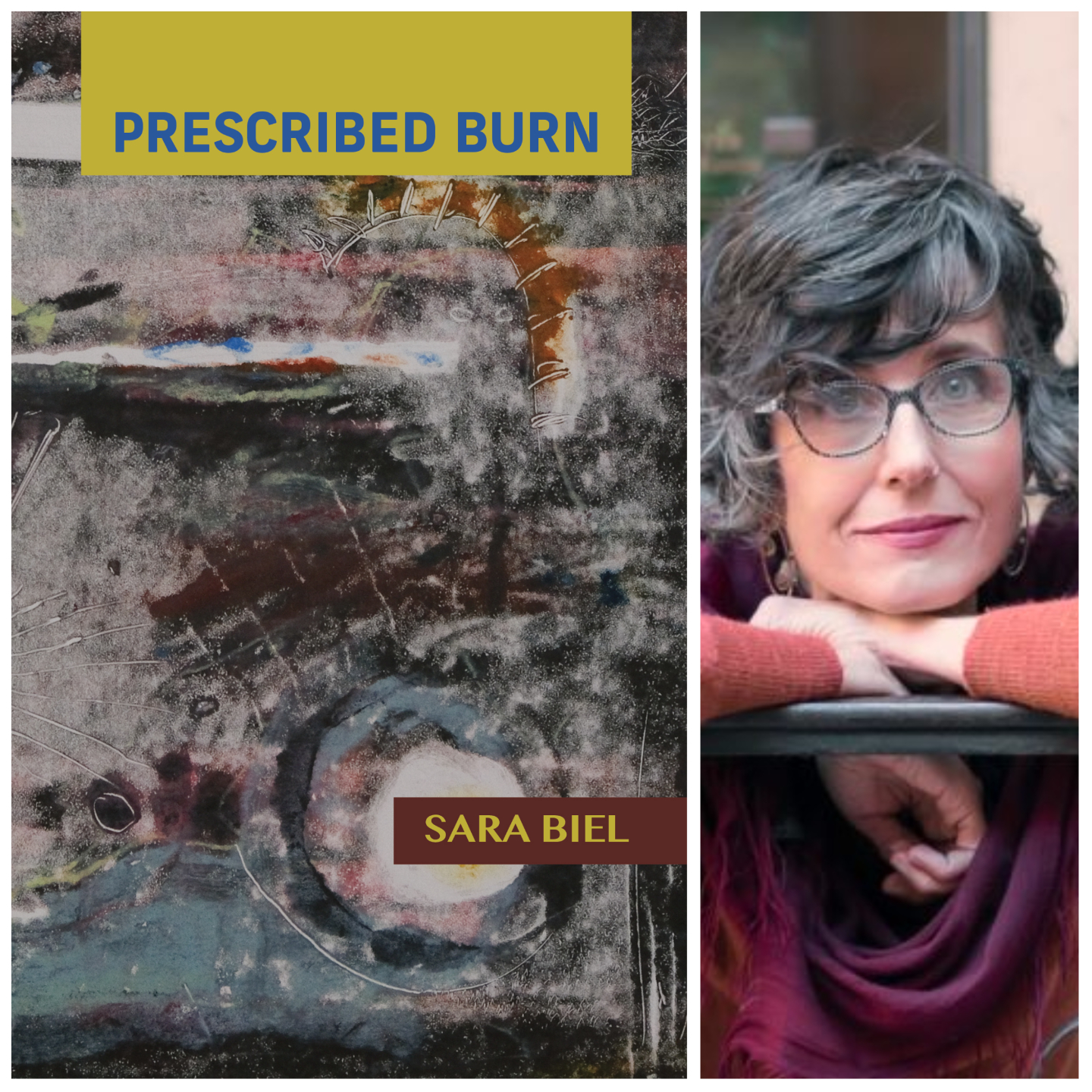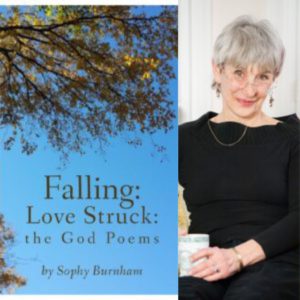Description
Prescribed Burn
by Sara Biel
$15.99, paper
979-8-88838-111-3
2023
Prescribed Burn is a collection of poems that trace the complicated nature of love and pain. It is a close exploration of the relational landscapes between parents and children, friends and lovers, even the self and society. These poems delve into the joy of connection and the bravery necessary to change, to choose love and life in our darkest moments. This book chronicles the human struggle to decipher what to hold dear, what must be nurtured and what must be destroyed in order for new growth to blossom.
Sara Biel is a poet, visual artist, and social worker living in Oakland, California. She is coeditor of the Colossus Press anthology series. Sara’s poems have been published in sparkle and blink, Button Eye Review, and Beyond Words literary magazine. She won honorable mention in the Streetlight magazine 2021 poetry contest. Her work has been included in the poetry anthologies, “Our Spirits Carry Our Voices” and ‘Words Upon the Waters.” She is interested in creative process as a medium for change, healing, and community building.






Richard Loranger –
Review of Prescribed Burn by Sara Biel
Finishing Line Press, 2022
Partway through her new collection of poetry Prescribed Burn, Sara Biel writes, “I’m well acquainted with places my shadows accumulate.” She clearly is, and is prepared to introduce you to them, gleaned from personal experience along with that of women she’s known and decades of social work. The reader is advised to ready themself for some well-spoke and worthwhile realness.
Biel’s shadows, shaped by a gamut of aggressions and traumas endured by women, manifest in sharp imagery that brings them very much into the body, where “Eyes catch like scissors. / Ears hold hollow regret.” She addresses an abusive relationship with this stark image: “My thoughts stretch, a clothes-line hung with my mistakes.” In the title poem “Prescribed Burn,” focused on the repercussions of a rape, she notes, “Most of me came home,” and “sometimes / a door needs to slam / before it can close.” Another about an injurious illegal abortion confirms that “some secrets don’t age, but calcify / breathe quietly, hands folded.” This is hair-raising stuff, even for familiar laments, often given here a novel iteration.
Along with these and other acts of violence upon the body, Biel explores her propensity –all of ours, really – for exacerbating trauma through a passive response, denial, silence, and checking out. In “Archaeology” she notes, “Words we never said flutter around us / confused as birds before a storm” (so true). She’s a bit less coddling in “Spring”: “tongue cramps before it reaches the edge of my teeth. /…/ Drowning is silent.” She also covers the experience and effects of depression, self-harm and suicidal ideation, the witnessing of violence done to others, and eventually brings us to the simple act of grieving a loved one, where, she recalls, “I shift my loss from hand / to hand.” Who doesn’t feel that?
There’s an irony in how some of this dark imagery can come across at moments as strikingly beautiful. For instance she recalls a visit with her estranged father where “we counted / the cut glass tumbled sprawl / watched the sparkling emptiness / of night wind down.” In one sense this kind of imagery makes the truth of the language hit even harder; at the same time it allows us here and there a little distance from what we’re witnessing. In either case (or both), it shows the clarity and incisiveness that Biel needed to achieve in order to address these experiences at all, and lets them ring truer and with lasting reverberation for the reader.
That said, and all the more gravid for it, this is not a book that takes you into the woods and leaves you there. This is a book that faces the shadows, then searches for means to dispel them. The last portion starts with “Inquisition,” a poem of questions that, whatever their original intention, confronts the reader here with how and what and why they do…anything. Perhaps the hardest part about healing from trauma is that you have to do so much of the work yourself, and this piece contextually allows the reader to grasp that. This book is after all called Prescribed Burn, the practice of purposefully burning some acreage to prevent wildfires from later spreading. Though the titular poem only foreshadows as much, the work overall is concerned with learning from trauma to prevent or lessen future pain, and with using whatever goodness one has at hand to heal. So at the end of the book Biel ushers in a series of pieces about learning to let go, the comforts of home and her daughters, gathering and growing oneself, and finding strength in the world. These poems are too lovely to spoil by quoting, though I will mention that the final poem, almost as an act of synthesis, puts a small woman face to face with “a predatory relic in apathetic streetlight” (I love that), who then finds the strength and knowledge to deal with him by “gathering effervescence under her skin.”
These final poesies do end the book on notes of warmth and healing, but don’t read them first! You’ll need them by the time you get there. This book is a collection of poems, yes, but it’s also designed as a journey through shadow and back toward light. It’s a traverse that many of us know, but Sara Biel’s specific path with its vivid details and cutting beauty is likely to enhance any reader’s perspective, and is absolutely worth stepping into from page one.